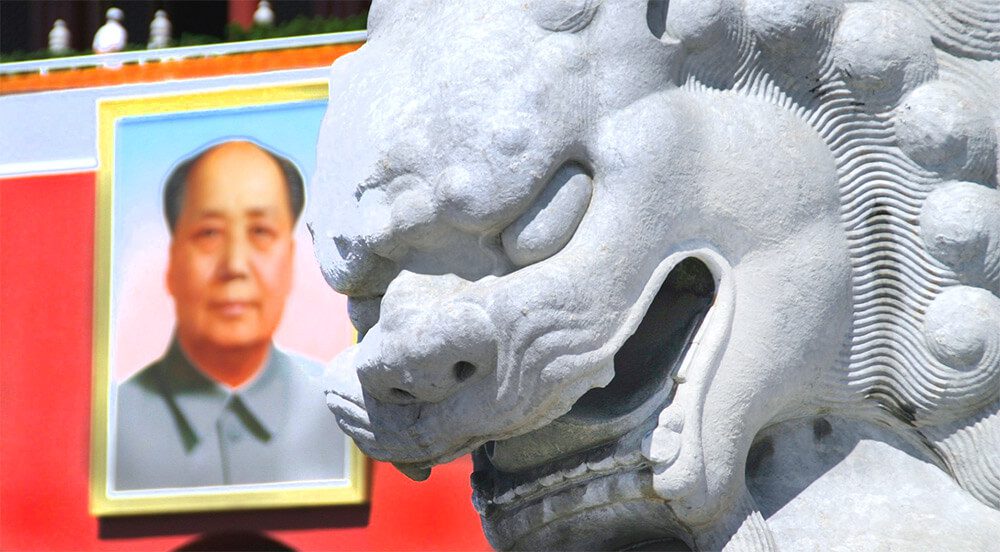 We are witnessing the early steps of a geo-strategic campaign by China to eradicate the rules-based international order that sustains Canada and like-minded middle powers, writes Charles Burton.
We are witnessing the early steps of a geo-strategic campaign by China to eradicate the rules-based international order that sustains Canada and like-minded middle powers, writes Charles Burton.
By Charles Burton, May 1, 2019
As time passes since China arbitrarily and brutally detained Michael Kovrig and Michael Spavor, sentenced Lloyd Schellenberg to death and severed Canada’s $2.7 billion annual canola seed exports, it is clear that our crisis with China is not simply a blip in Beijing’s international relations with the West, a Canada-China storm that will eventually calm.
This week, Canadian citizen Fan Wei was sentenced to death in a Chinese drug trial where nine co-accused received lighter sentences.
We are witnessing the early steps of a geo-strategic campaign to eradicate the rules-based international order that sustains Canada and like-minded middle powers against the anarchy of superpower rivalry between China and the United States. If sinking the United Nations and the World Trade Organization is required to achieve this, Beijing will proceed accordingly.
So the federal government politely urging Beijing to grant visas to our agricultural specialists to show the Chinese that our canola seeds are not contaminated as they falsely claim, or seeking mildly supportive press releases from Australia, the Netherlands, Latvia, Lithuania, Estonia, Spain, Denmark — and even from more significant actors such as the European Union, NATO, the United Kingdom, France, Germany and, oh yes, the United States — is evidently not going to get us anywhere.
Canada’s days of virtue-signalling are long past the point of getting Kovrig and Spavor out of the hell they endure. China has a million or more Turkic Muslims in “re-education” cultural genocide camps in the PRC’s northwest, and plans to do the same to Tibetans. Moreover, there are huge numbers of China’s own political prisoners suffering at least as badly in conditions similar to the “black jail” incarceration of our two citizens. In this light, Canadian concerns are unlikely to be very high on the agenda of China’s Communist leadership.
In 2012, when Canada thought that free trade with China would be the key to sustainable diversified Canadian prosperity, then-Liberal MP Justin Trudeau put forth that “we deceive ourselves by thinking that trade with Asia can be squeezed into the 20th-century mould. China, for one, sets its own rules and will continue to do so because it can. China has a game plan. There is nothing inherently sinister about that.”
But the practice of most Western nations, to condemn politically while engaging economically, has enabled China to make divide-and-conquer an art form. While many of the nations listed above have issued statements supporting Canada’s outrage at China’s flaunting of international law, most countries remain silent, fearing Beijing’s retaliation. In the final analysis, China wields raw money power and the myth that a windfall is coming if Beijing gets what it wants.
Dishonest coercive intimidation is not a traditional Confucian cultural virtue. China succeeds in its existential threat to pluralistic, democratic and free-thinking societies because we have been blinded by greed, and have willingly looked away for more than 25 years as Communist authorities ignored international norms of human rights and fair trade. As a liberal democracy, Canada cannot and would not retaliate in kind by subjecting Huawei CFO Meng Wanzhou to the inhumane treatment meted out to Kovrig and Spavor, or barring Chinese imports through blatantly false claims.
Today, there is growing coordination between security agencies of our allies, seeking to come to terms with Chinese covert activities throughout the world. But just having our own governments’ secretive institutions reach consensus on the nature of the problem does not lead to solutions.
We need to relate much better to ethnic Chinese communities in our midst, and see through distorted perceptions that lead to anti-Chinese racism. We urgently need a reset on how Western governments and society deals with China, and we need to do it transparently. Currently, there is no coherent multi-national strategy against Chinese influence operations. The less we respond to it in any substantive way, the more China is emboldened in its practice of global disruption.
China’s remaking of the global rules is making the world safe for autocracy, tacitly demanding that Canada passively surrender our values to an authoritarian state. Canada should be uniting with our allies in a coordinated stand for political justice and fair economic engagement with China. But this requires more than allocating resources and government expenditure. The political will has to be there.
Canadians need to be a lot more aware and a lot more determined than we are now, and demand that our politicians do the right thing for Canada and the world.
Charles Burton is associate professor of political science at Brock University, senior fellow at the Macdonald-Laurier Institute’s Centre for Advancing Canada’s Interests Abroad, and former counsellor at the Canadian Embassy in Beijing.




